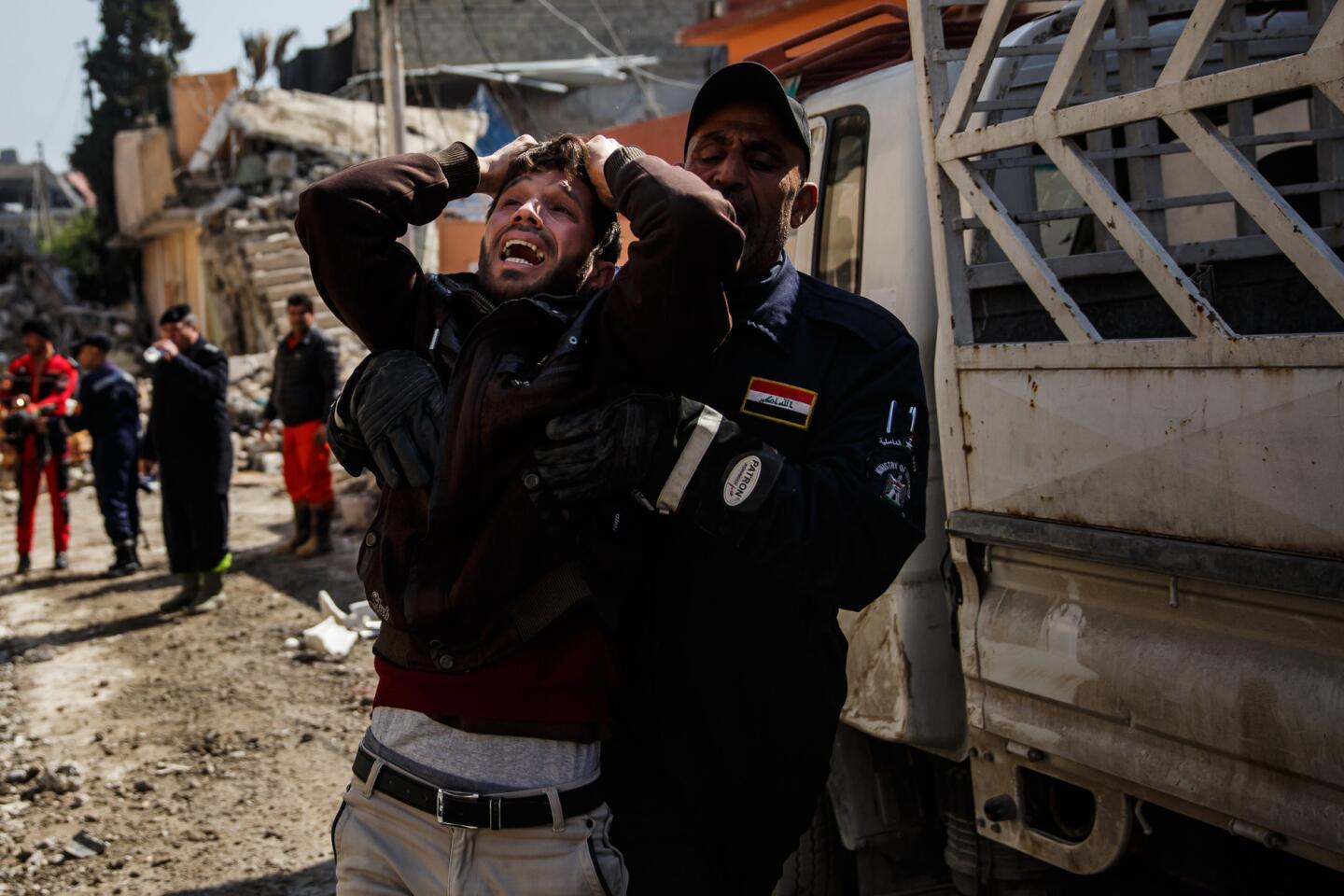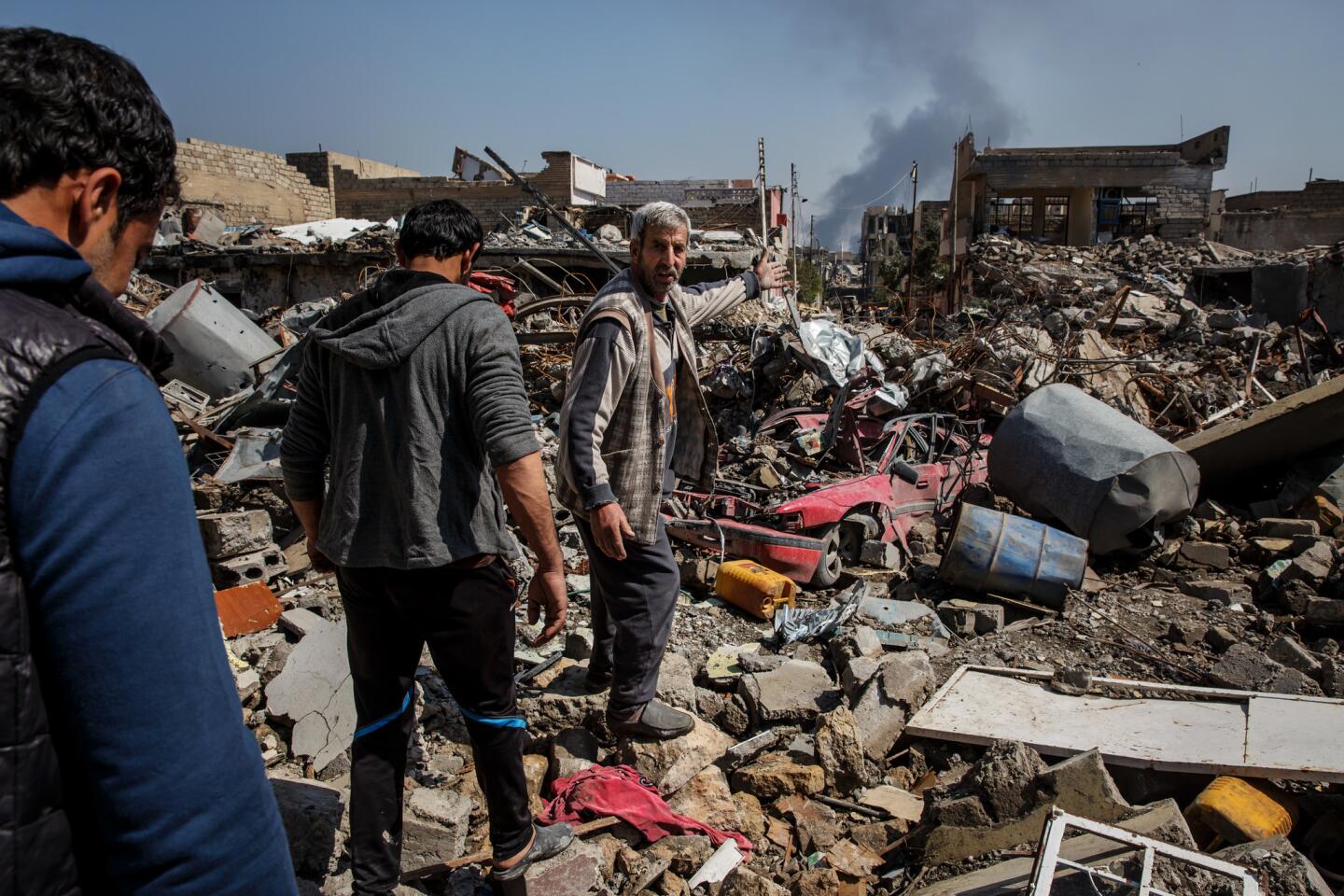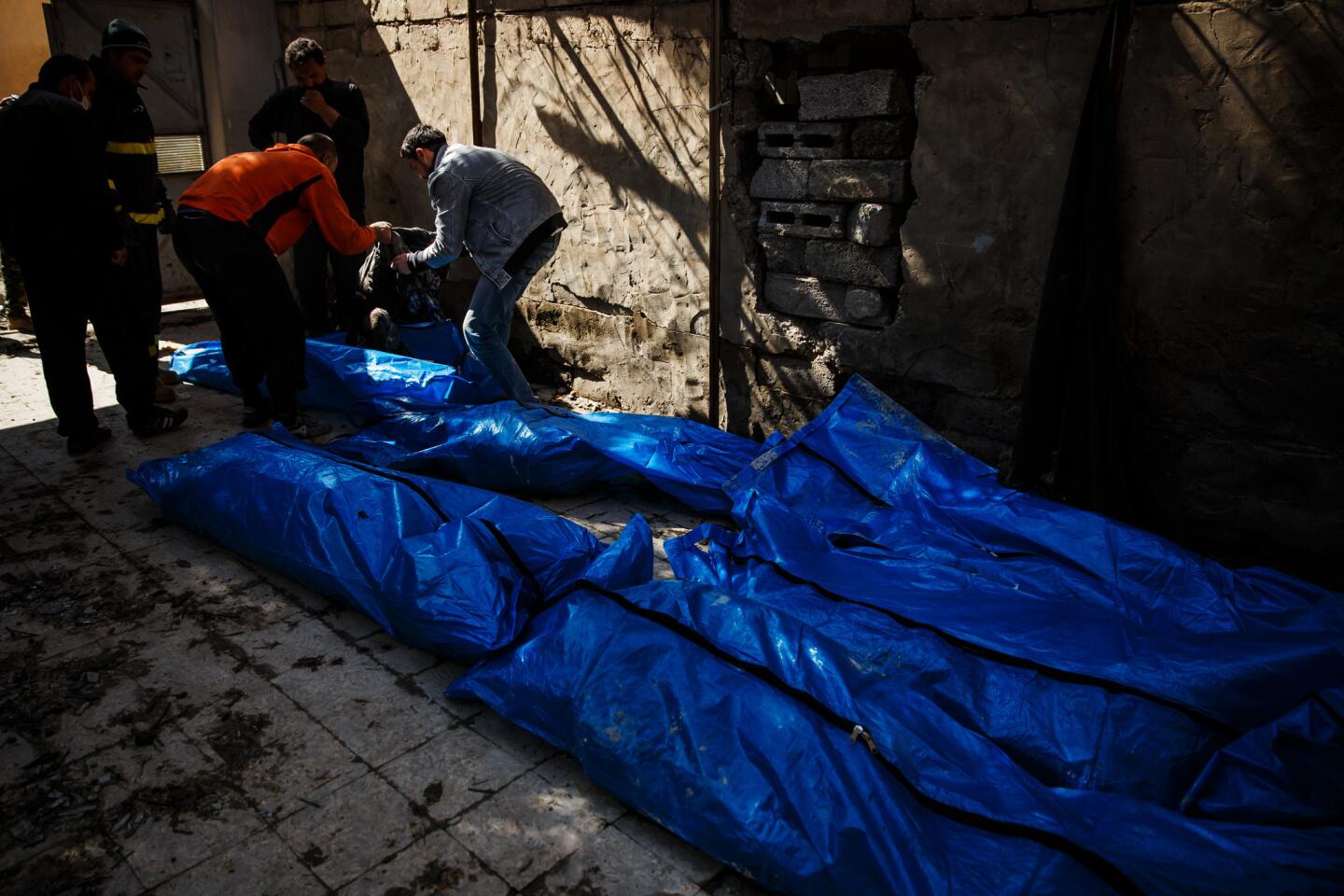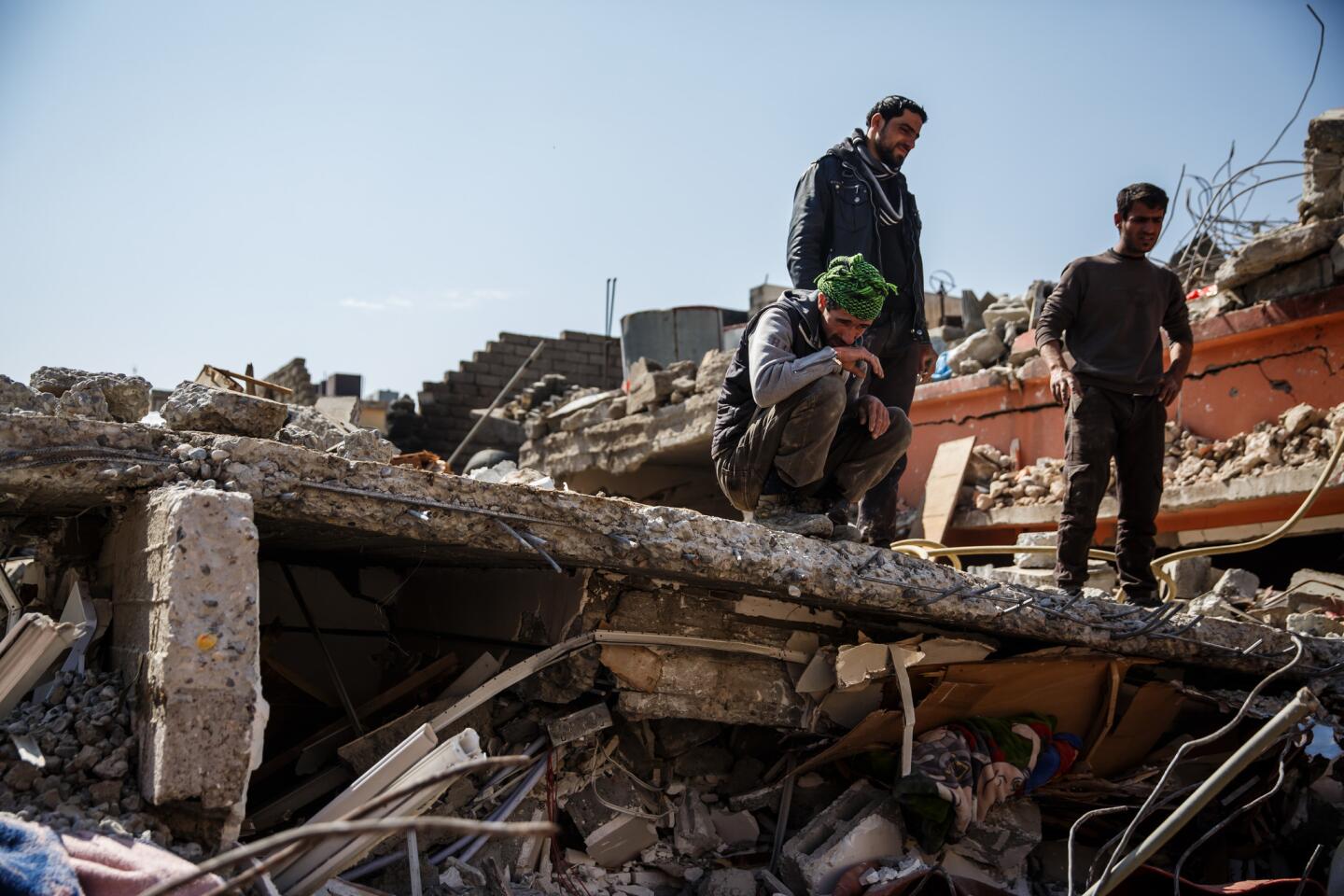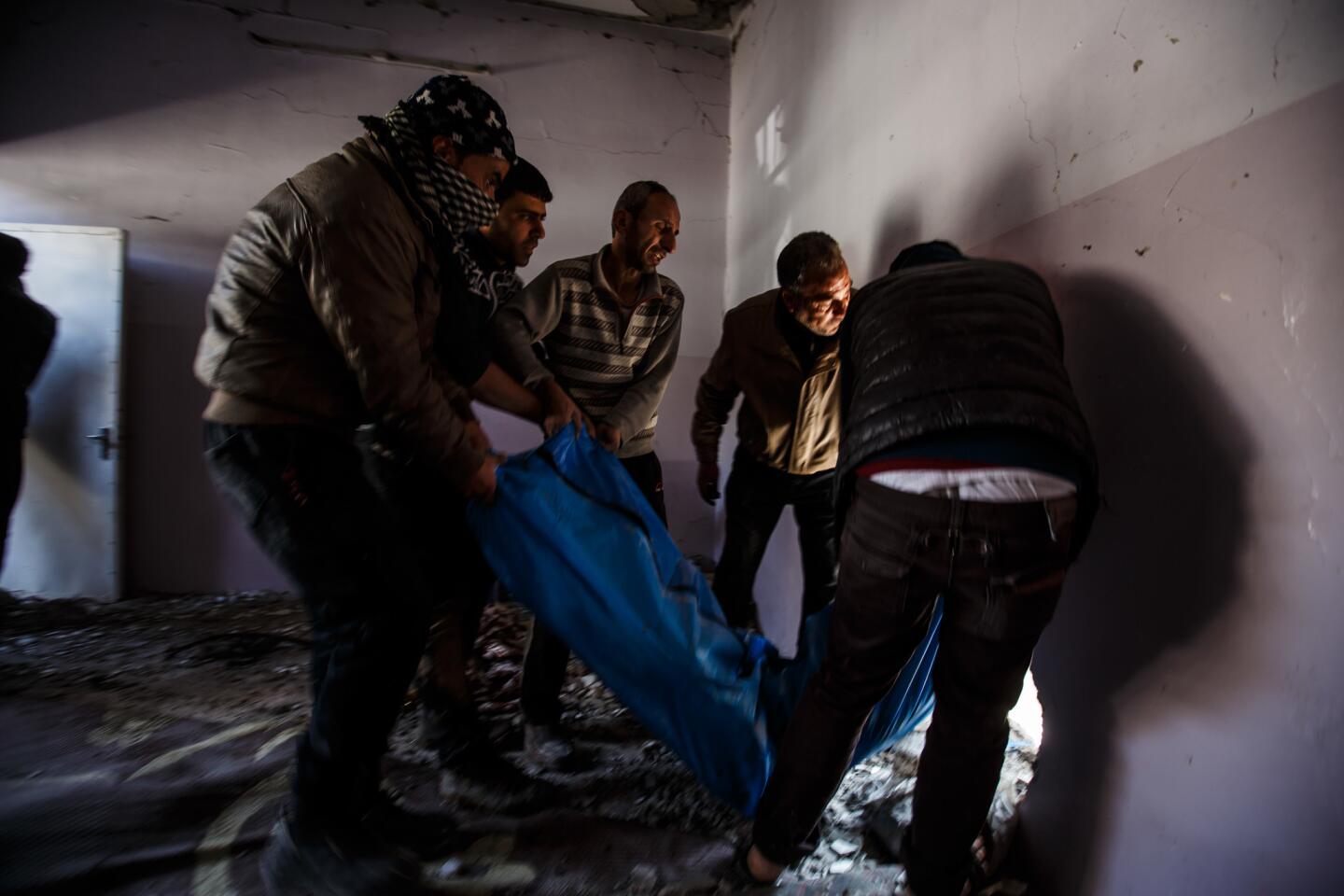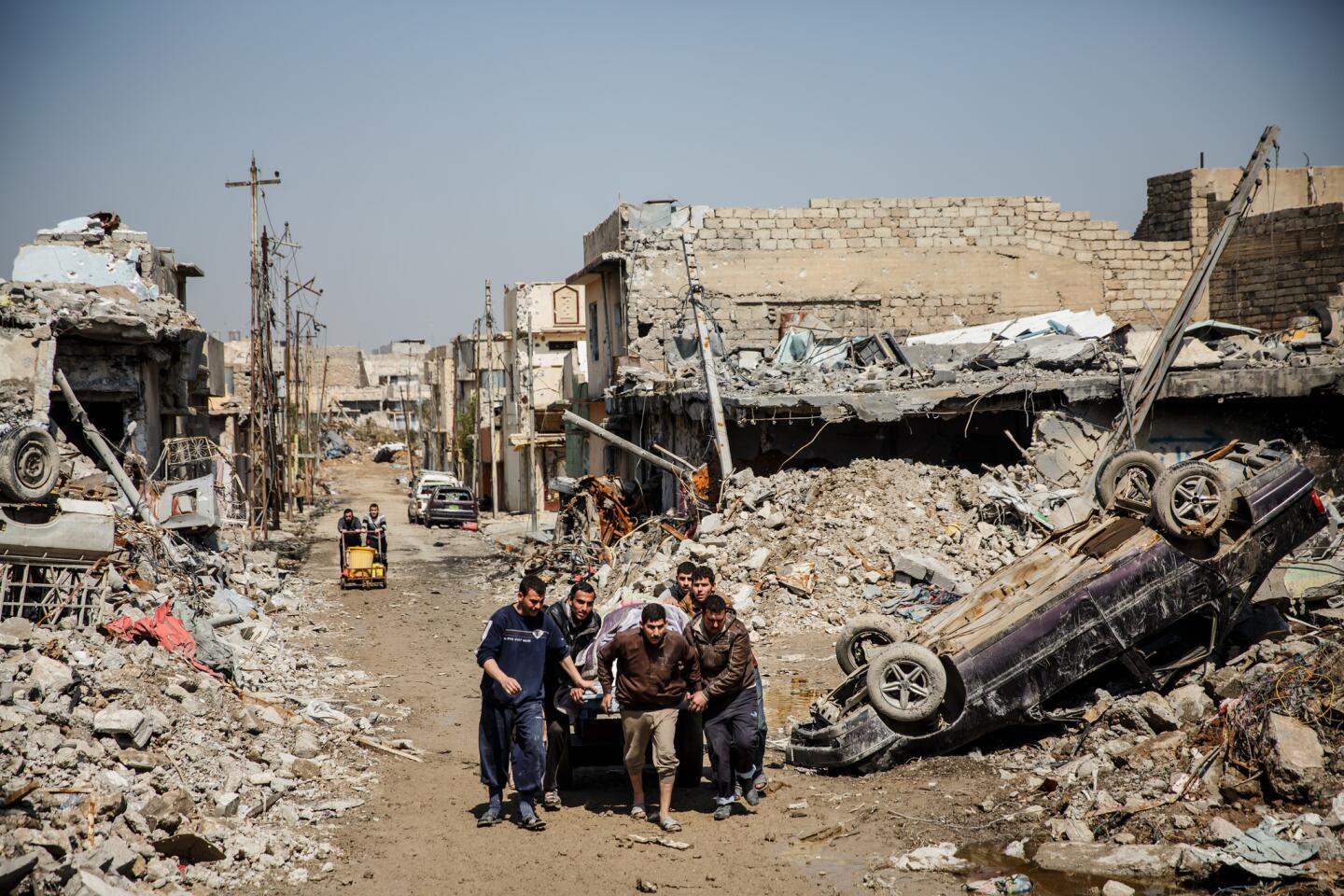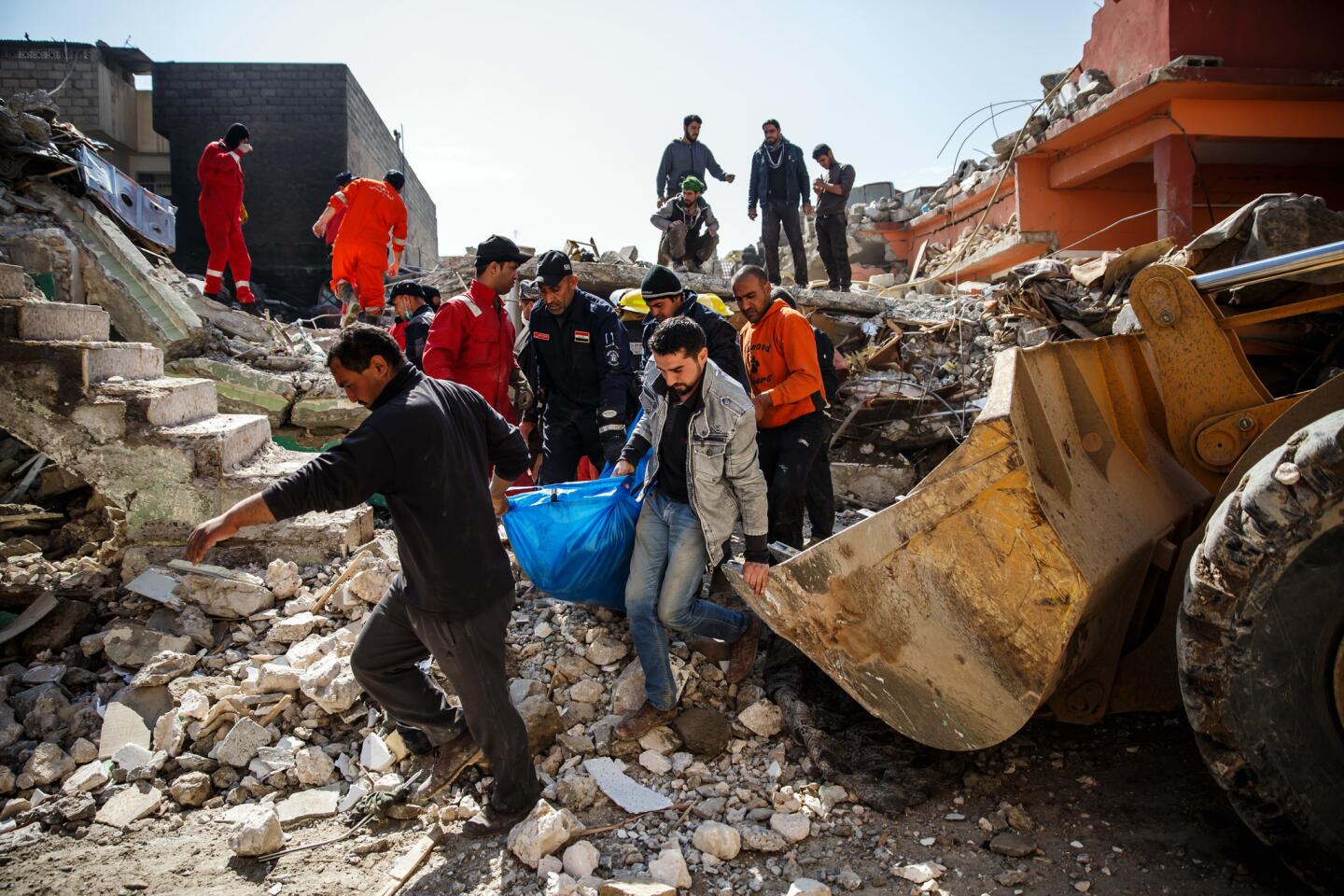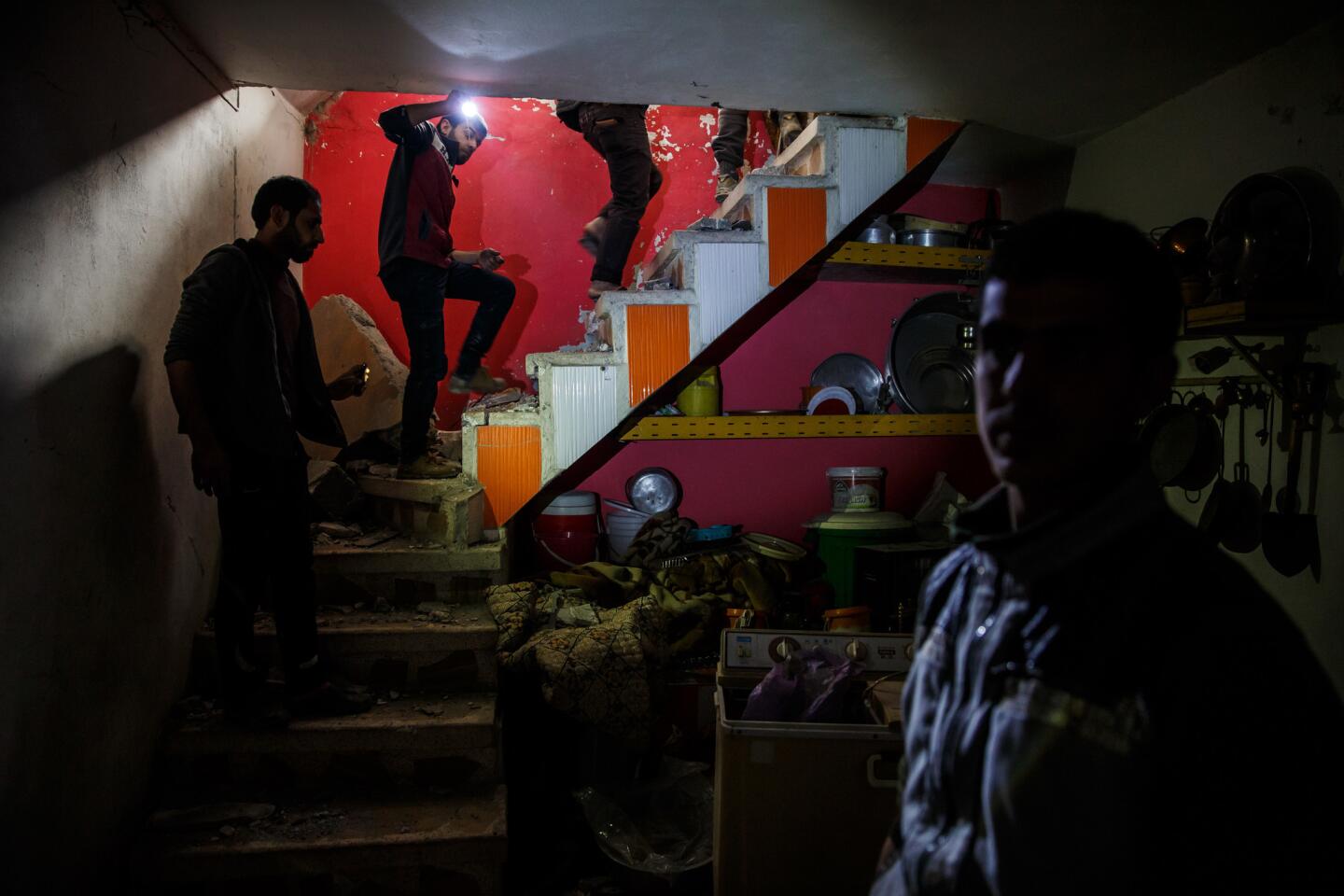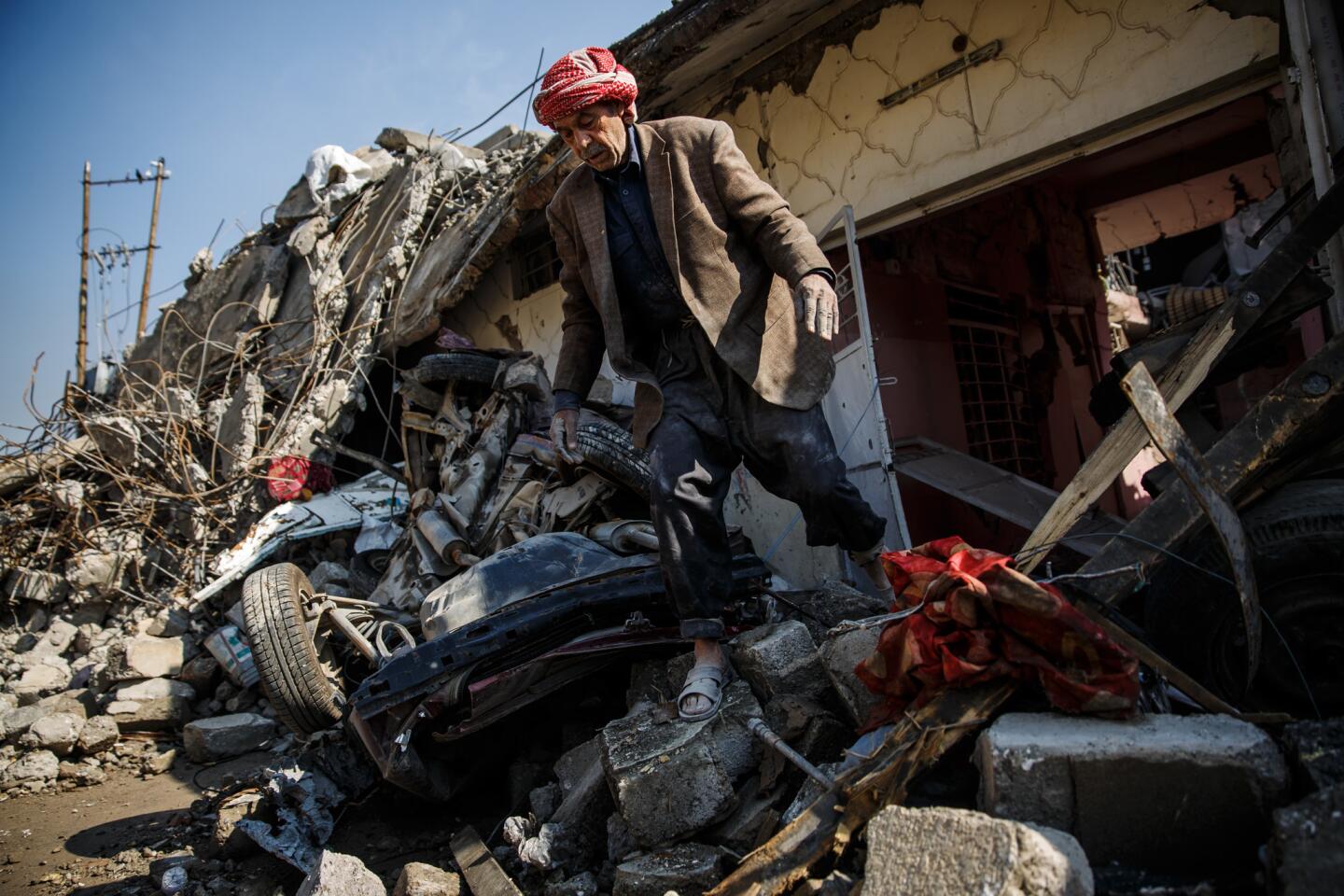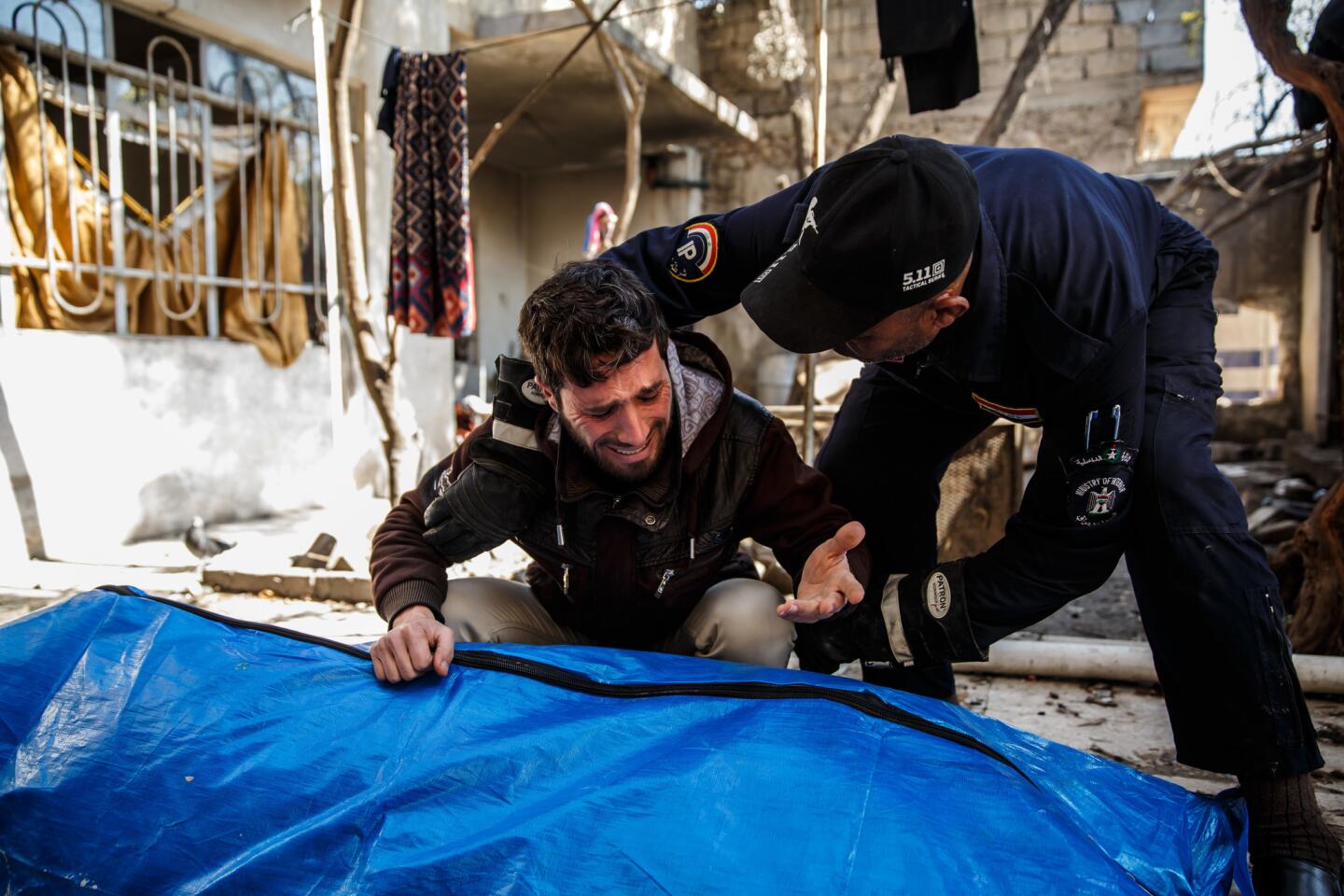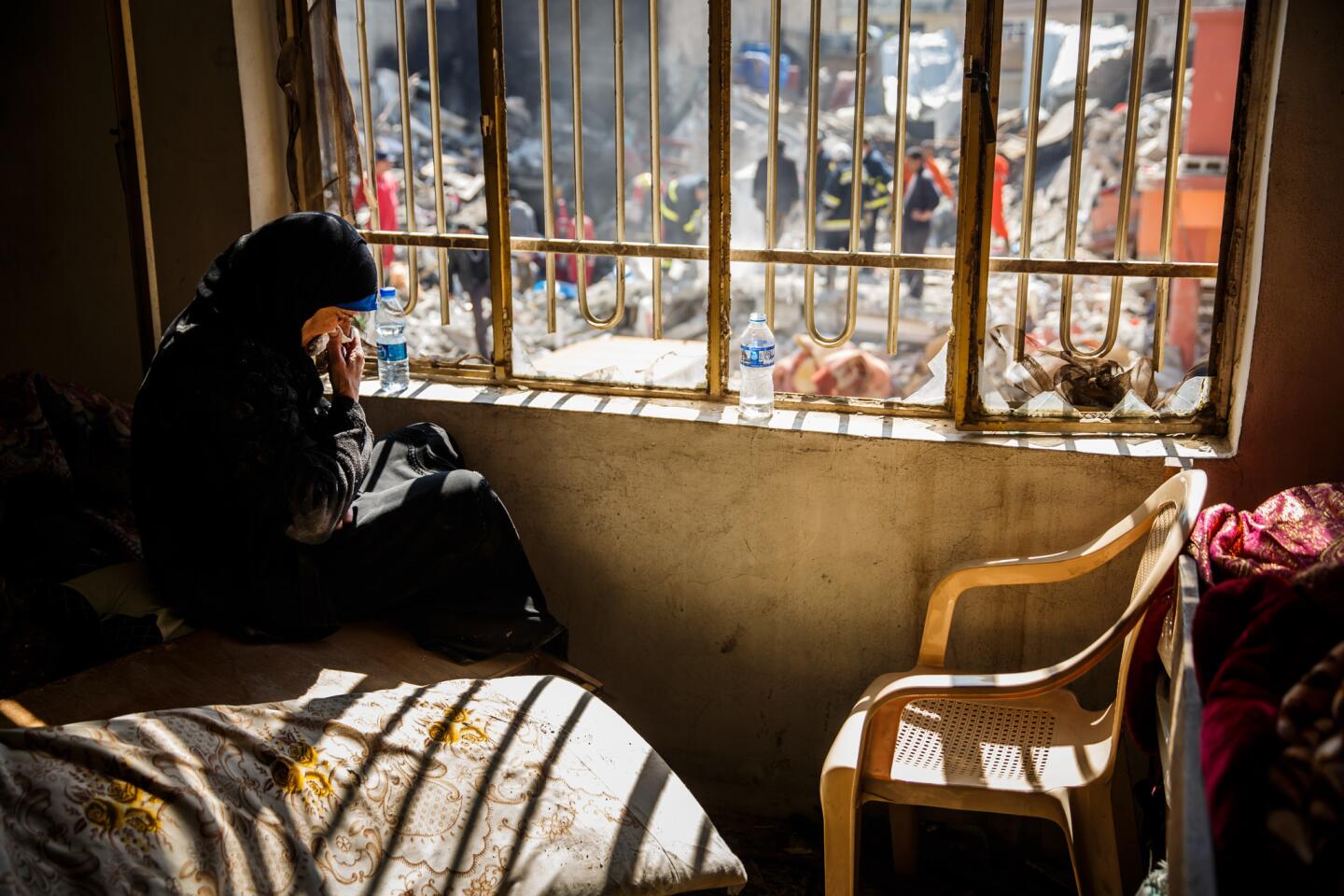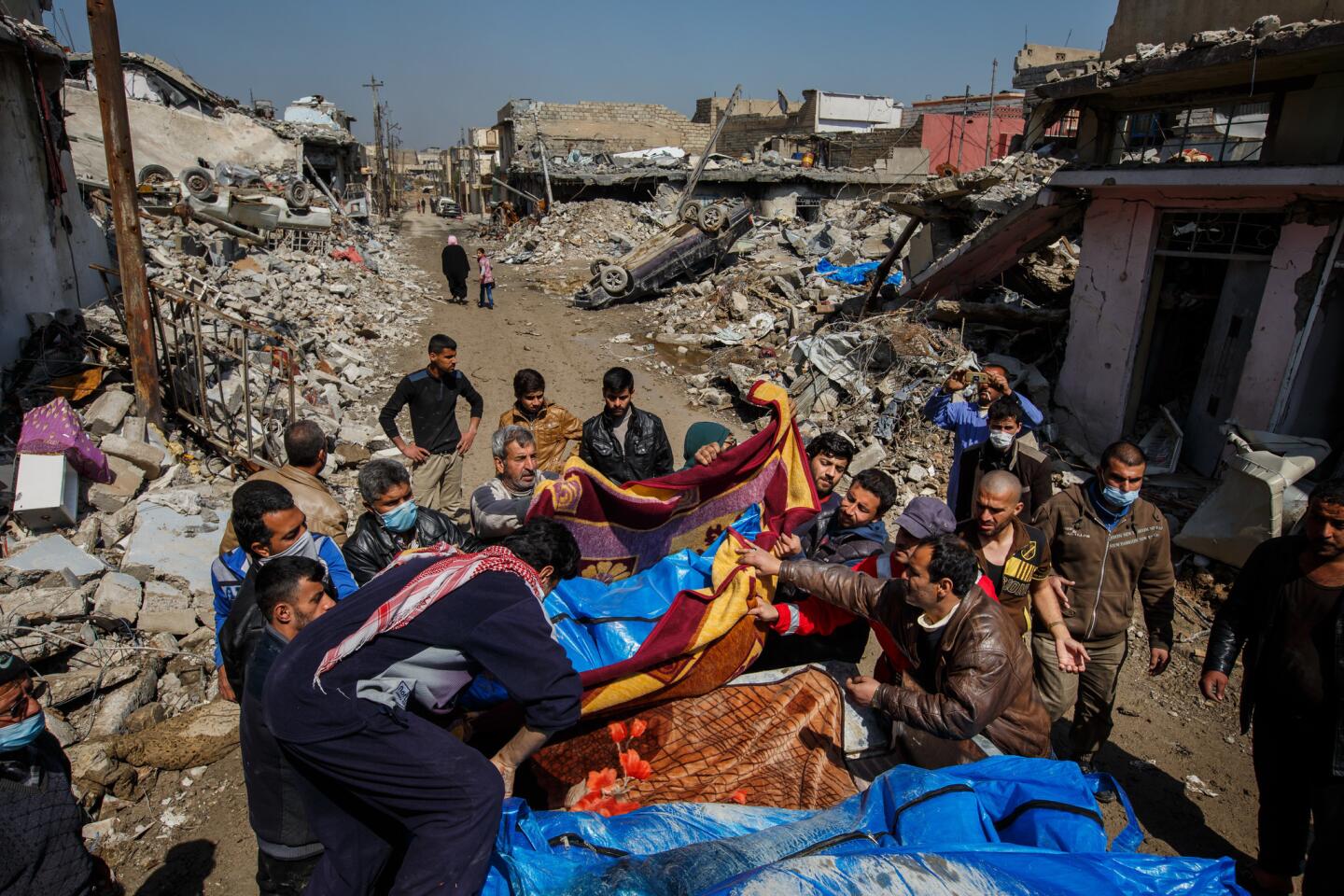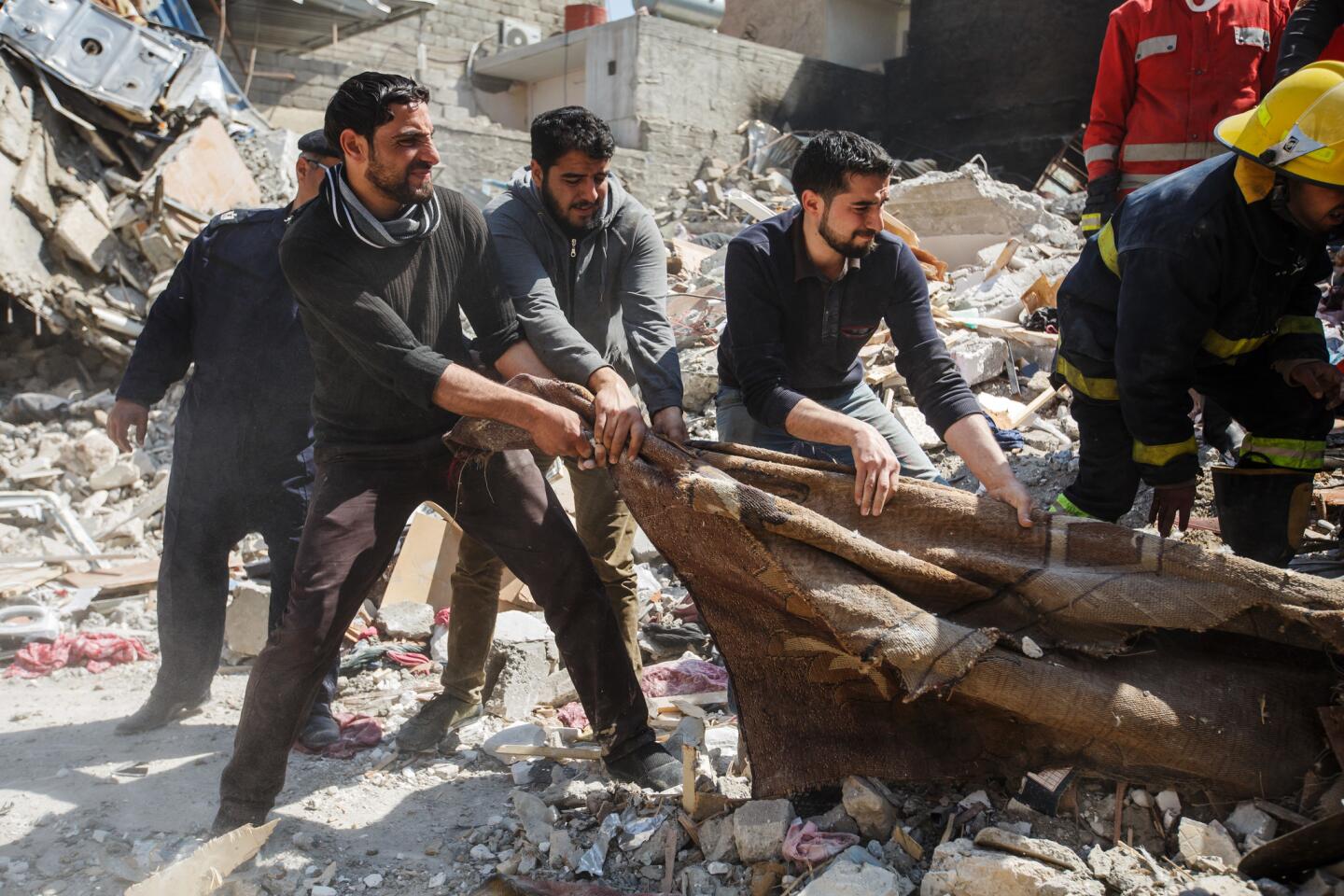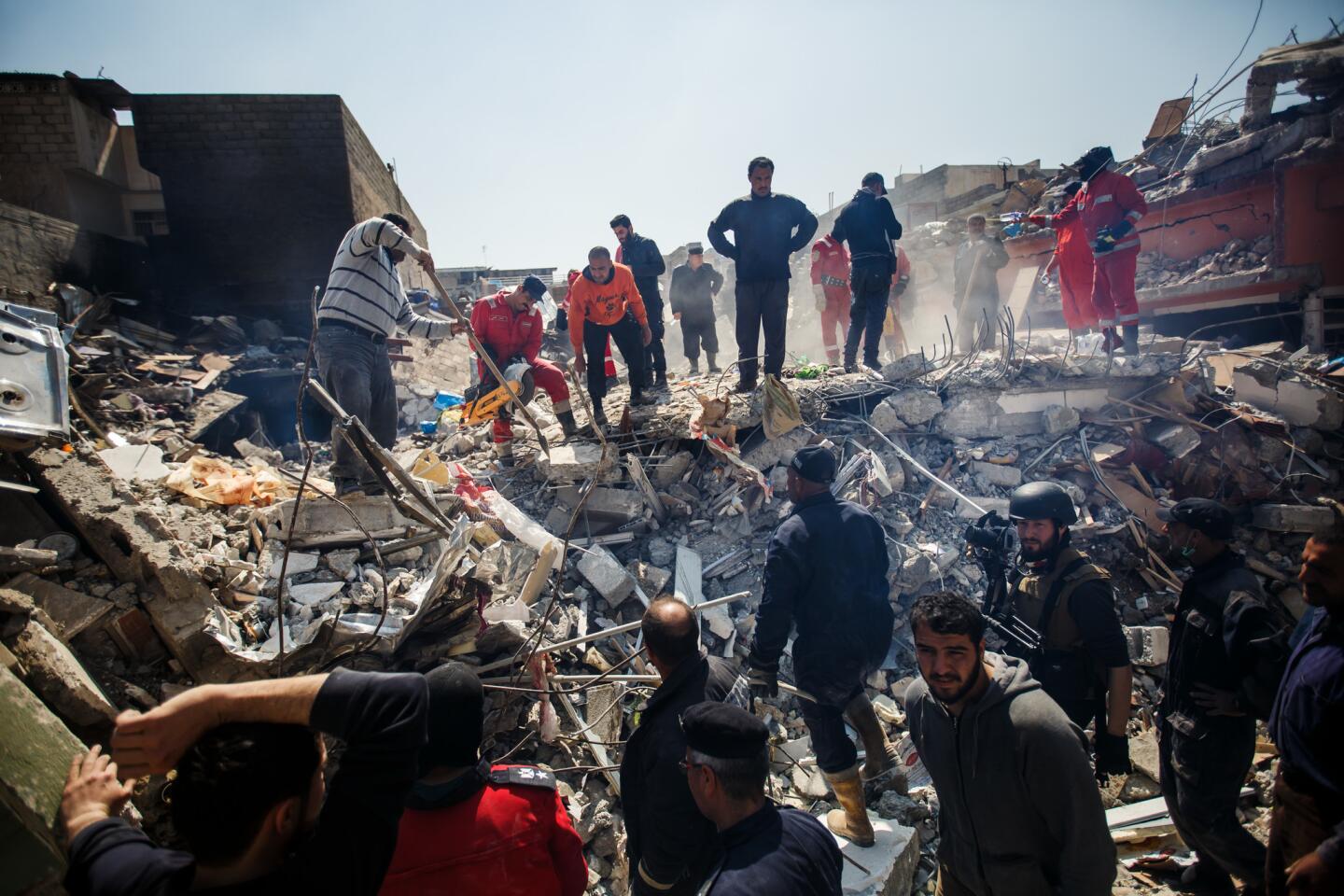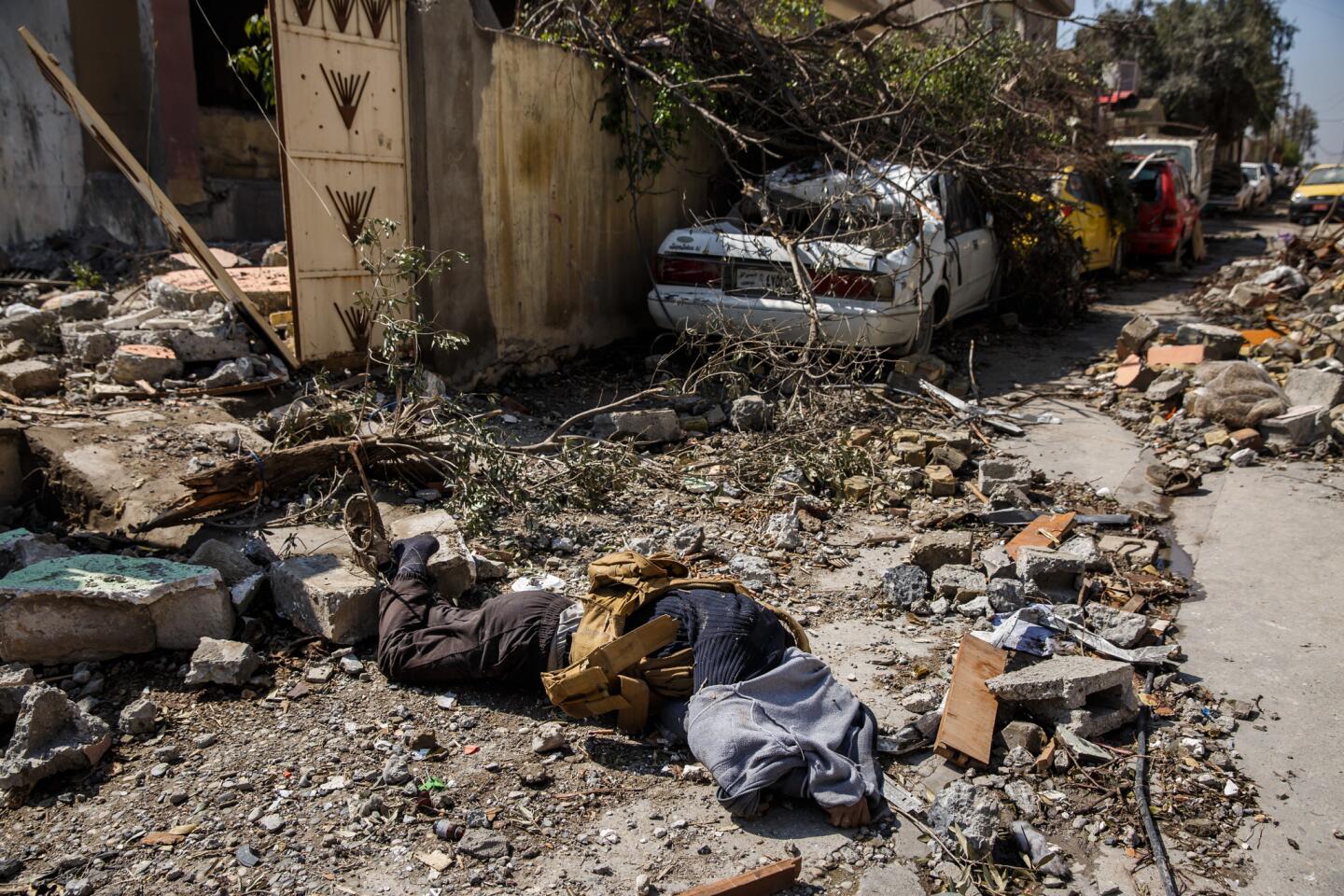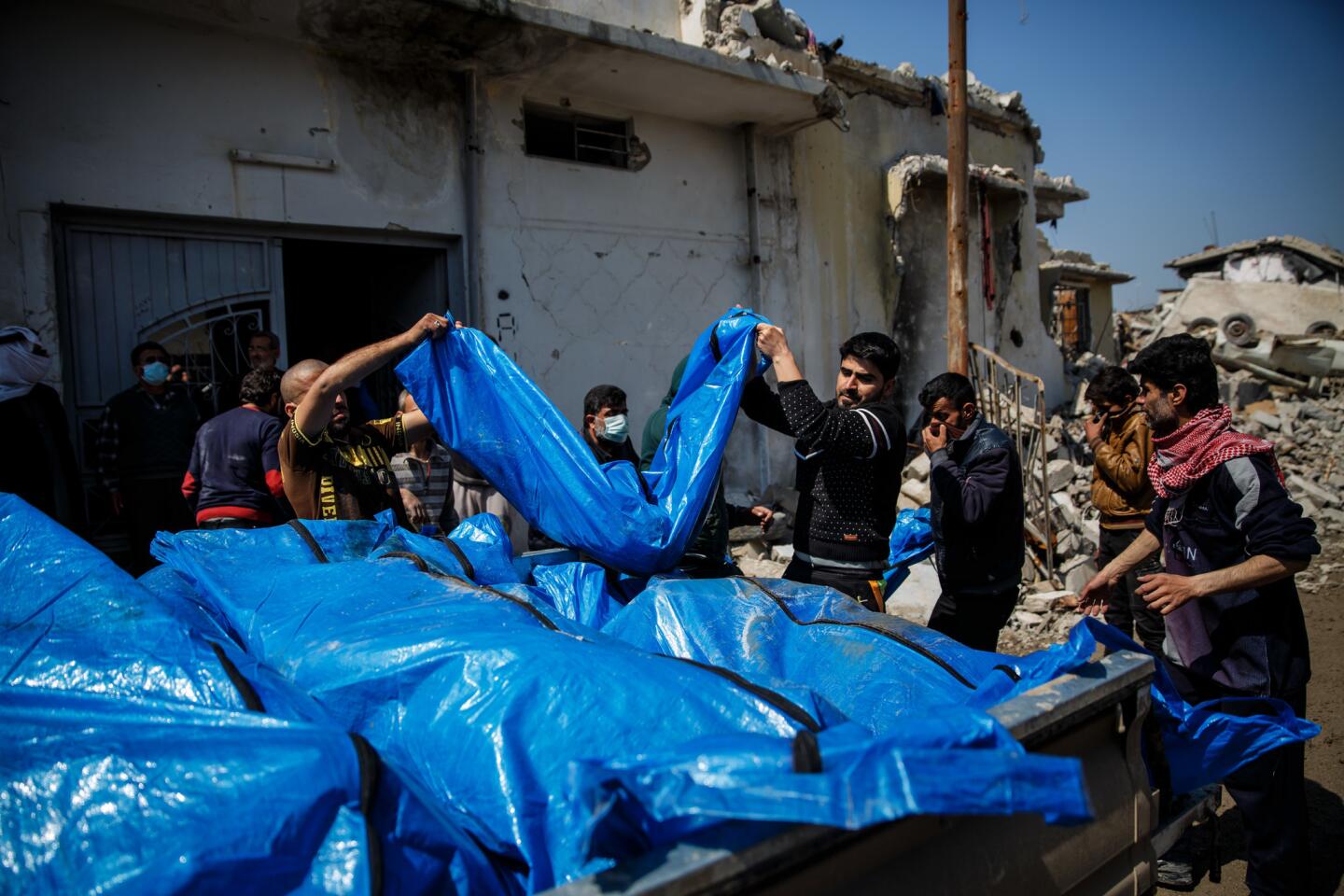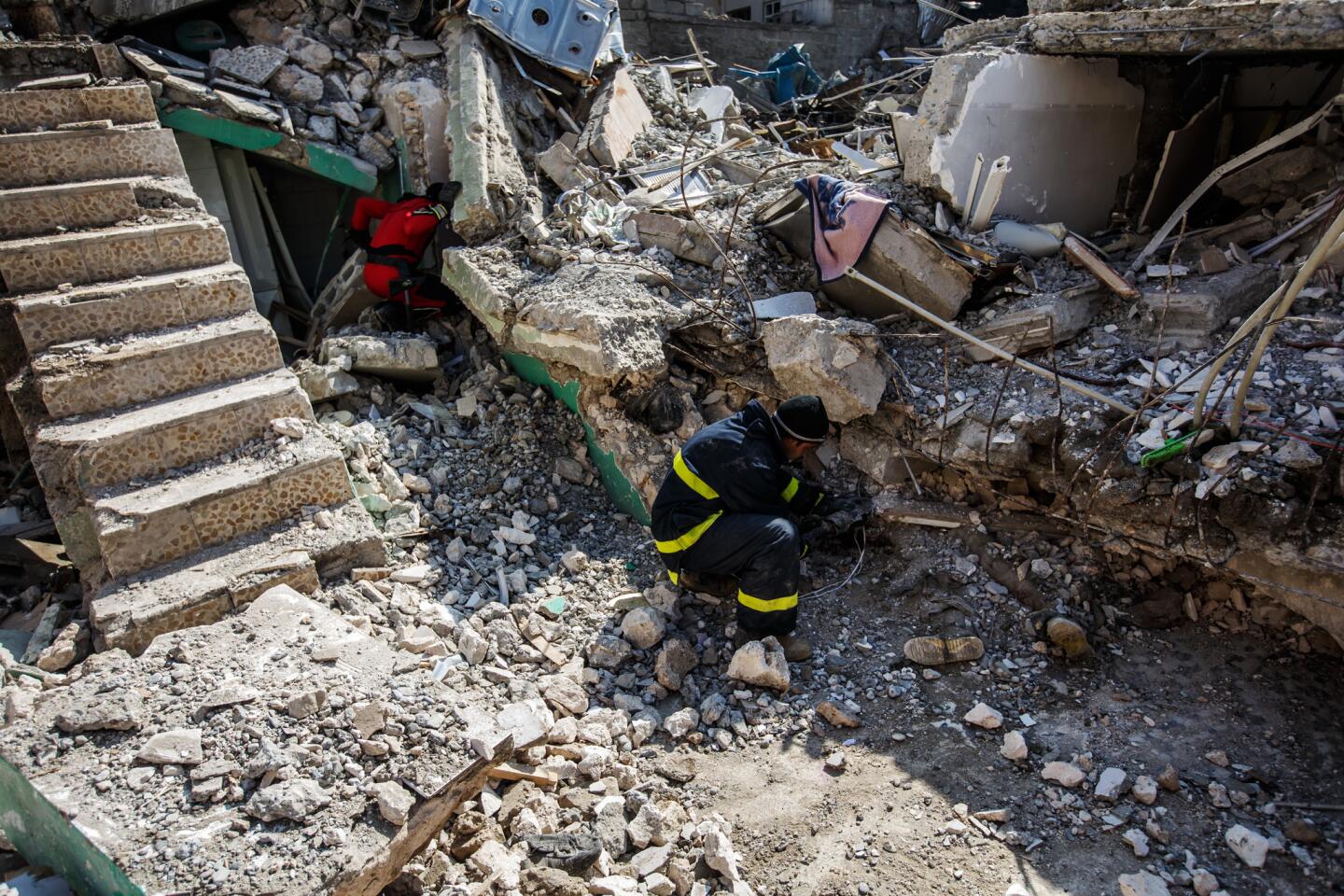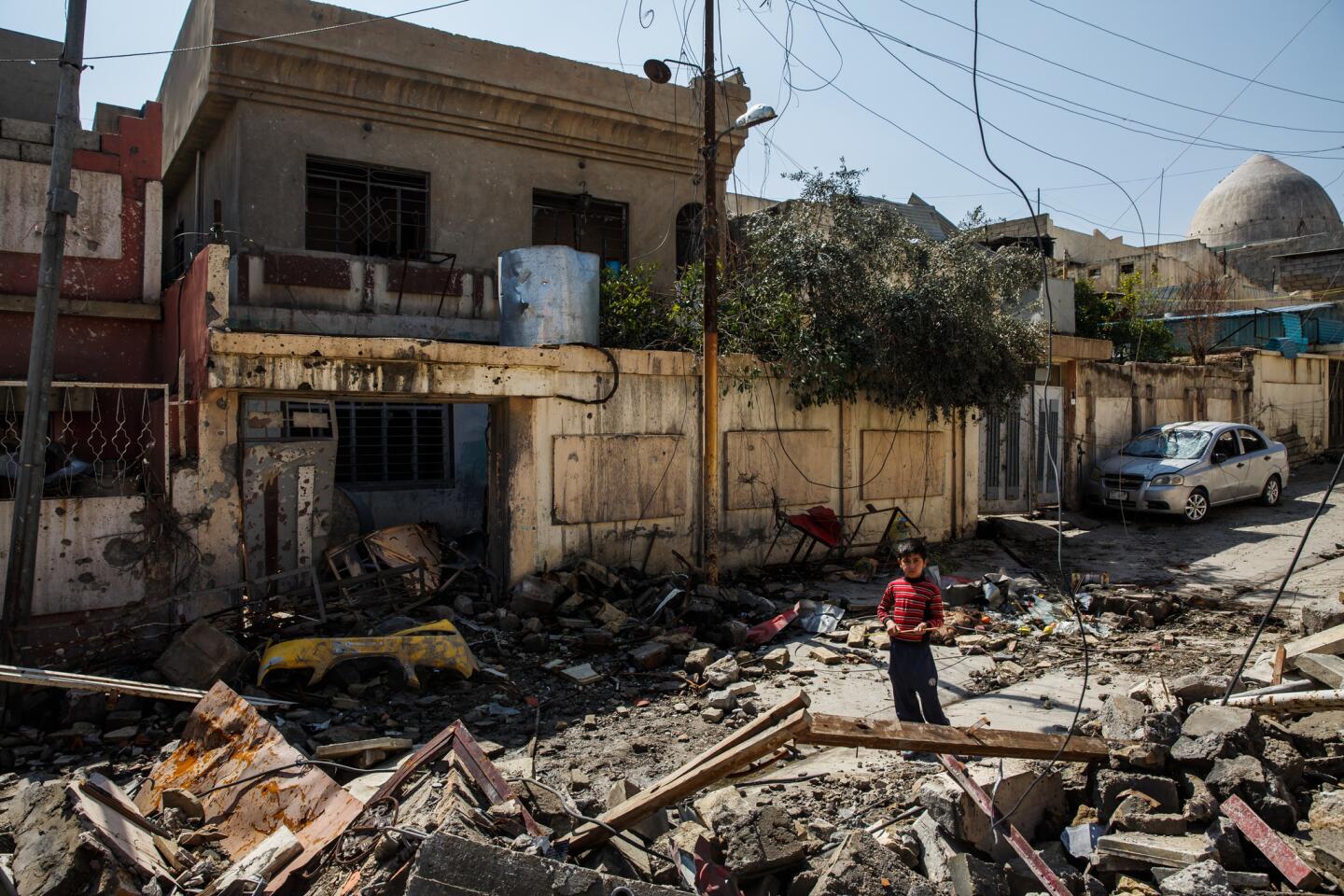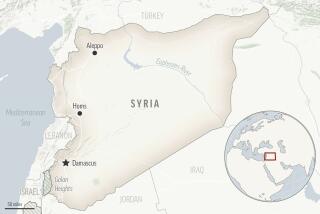U.S. military officer in charge of approving airstrikes defends procedures used to prevent civilian deaths
As the U.S.-led coalition fighting Islamic State faces increasing criticism for killing civilians in airstrikes on the dense neighborhoods of west Mosul, a senior U.S. military officer in Iraq defended the procedures used to prevent such deaths.
“We are very careful about how much collateral damage we are going to cause,” Brig. Gen. Rick Uribe, who is responsible for approving strikes in many parts of Iraq, said Thursday.
“We’re here to defeat them,” he said of the Islamic State militants, “and we’re going to do it the moral way.”
To illustrate the procedures — and the difficulties Iraqi forces and their international backers face in targeting militants without hurting civilians — Uribe played two black-and-white surveillance videos for The Times during a visit to the coalition’s joint operations center and “strike cell” in Baghdad’s Green Zone. Both were taken within the last month in west Mosul and show militants using people as shields.
In the first video, Islamic State militants can be seen forcing civilians into a house.
“They’re herding civilians and basically creating a hostage situation in Mosul,” Uribe explained. “See all the children?”
The second video showed a man holding a small figure in front of him. “He’s yanking a child along with him,” Uribe said.
After identifying the man as an Islamic State militant, coalition and Iraqi forces considered launching an airstrike but decided against it because of the child, Uribe said.
The situation, he said, “didn’t meet our elements of a strike.”
The question of whether to strike has become increasingly wrought since a Mar. 17 explosion leveled an entire city block and killed 200 or more people in the west Mosul neighborhood of Jadidah. Iraqi officials have said it was an airstrike, and a top U.S. military officer has acknowledged that was probably the case.
Survivors suggested that the militants engineered the destruction by herding people into their homes and stationing snipers on the rooftops to lure a strike and maximize civilian deaths. Islamic State uses the deaths in its propaganda to turn the population against the coalition.
Uribe said he could not discuss the incident, which the U.S. military is currently investigating. Its findings are expected in the next few weeks.
His territory does not include Mosul, so he did not approve that strike, he said.
Uribe said a strike can be initiated two ways: A coalition official in the field can do it based on direct observation of the target, or the “strike cell” can confirm at least two separate forms of intelligence from different sources.
“We conduct scans” — including surveillance videos such as the ones he shared — “to determine that there are no civilians in the area,” Uribe said.
The coalition is mindful of preserving mosques, schools, hospitals and other facilities where civilians may gather, he said.
Once a coalition commander approves a strike, Iraqi officials must sign off.
“If they say no, and they have in the past, we don’t strike,” Uribe said.
The final decision to strike rests with the joint terminal attack controller responsible for firing the strike, who can cancel or redirect it — for example, if an unidentified person enters the scene. The procedure is known as “shifting cold.”
“We do that all the time,” Uribe said.
Lt. Gen. Stephen Townsend, the commander of the fight against Islamic State in Iraq and Syria, said this week that some “minor adjustments” have been made to the written rules of engagement under which the war is conducted. He would not say what the changes were, saying that they are “classified” and that they were not a factor in the Jadidah strike.
Strikes have become increasingly common in the effort to hunt down Islamic State militants in Mosul.
The coalition aircraft released more than 7,000 weapons against Islamic State in January and February, the most of any two-month stretch since the campaign began in 2014.
The coalition has acknowledged 220 civilian casualties in strikes in Iraq and Syria since 2014. But London-based Airwars, an independent monitoring group, put the death toll at 2,700.
“We learn from those mistakes,” Uribe said.
Human Rights Watch released a report this week calling on the coalition to investigate “dozens” of civilian deaths due to airstrikes, saying they raise concerns about the way the battle for west Mosul is being fought.
The report noted that more coalition forces have been “empowered” during the Mosul offensive to call in strikes without clearing them with a strike cell leader.
“This change could account for rising civilian casualties as there are now less U.S. eyes on the target,” said Sarah Margon, the group’s Washington director.
More to Read
Sign up for Essential California
The most important California stories and recommendations in your inbox every morning.
You may occasionally receive promotional content from the Los Angeles Times.
